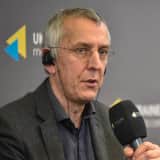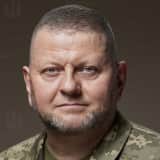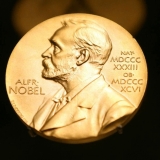Russia playing cat and mouse with the head of the IAEA, Rafael Grossi
Authors:
Jan Vande Putte, nuclear and radiation expert at Greenpeace Ukraine
Shaun Burnie, senior nuclear expert at Greenpeace Ukraine
Advertisement:
In March 2022, almost three years ago, the director of Greenpeace International wrote a letter to Mr. Grossi, the head of the IAEA, asking to suspend his deputy director of the Nuclear Energy department Mikhail Chudakov. Why such an unusual request? Chudakov is a former operative of the Russian nuclear energy monopoly Rosatom, and his presence at such central position with access to confidential information was untenable after the full-scale invasion of the 24th of February and the illegal and violent occupation of the Zaporizhzhia nuclear power plant on 4th of March. Mr. Grossi replied later in a letter that for all his staff including Chudakov he took full responsibility for the integrity of his deputy inside the IAEA.
This is not an old anecdote, it is illustrative of 3 closely related events that took place over the last three days during this intense week.
First, on Tuesday 10th, there was the Russian drone attack on the IAEA vehicle on its way to the Zaporizhzhia nuclear plant. Mr. Grossi reacted saying that the attack on his colleagues was unacceptable "whoever did this". It was crystal clear who did it. It was Russia and Russia only. A dark move to intimidate the IAEA two days before an exceptional meeting of the Board of Governors of the IAEA, which is a decision making body consisting of 35 countries represented by their ambassadors in Vienna. Not just because Russia did not like the agenda but it knows the result of the meeting could challenge Russia’s current attacks on Ukraine.
Ukraine had called for such exceptional meeting to vote on its very diplomatically worded text recognising that "targeting Ukraine’s energy infrastructure critical for the off-site power supply of nuclear power plants represents a direct threat to nuclear safety and security" and further for the IAEA to take "additional measures immediately if risks arise to prevent a nuclear accident". The last sentence means: sending IAEA inspectors to Ukrainian electricity substations.
Russia does not want the IAEA presence at the substations it is targeting with its waves of missiles and drones. Russia has absolutely no consideration for the life of Ukrainian workers such as from DTEK or Ukrenergo, but killing IAEA staff would be a serious problem for Russia. The IAEA for decades and until today is helping Russia in the export of nuclear technology in the world. Not less than 80% of all exported nuclear reactors are Russian. And Mr. Chudakov has the lead at the IAEA to promote Russia’s export. Russia’s drone attack on the IAEA was in naval terms a shot across the bow. Non-lethal but a clear intimidation.
Then, what happened in Vienna this Thursday? Russia was almost entirely isolated. Only 2 countries, including Russia itself, voted against the Ukrainian resolution. Key BRICs countries such as South Africa and Brazil voted in favor. A clear diplomatic victory for Ukraine. And a strong call to the IAEA to take immediate action.
Following the diplomatic humiliation in Vienna, Russia decided to show strength. At least to try. The drone and missile attack of Thursday night and Friday morning is the third event this week and a direct consequence of the vote. It is however not showing strength but desperation following geopolitical and diplomatic defeats. The reason Russia was isolated in Vienna had less to do with politics, but with genuine concern of governments around the world that Russia was playing Russian roulette with Ukraine’s nuclear power plants. Russia had crossed a line in the eye of the world. Crossing it again with its last attack is further weakening Russia’s position.
And this brings us to the fourth stage in this weeks’ story. The ball is now with Mr Grossi, will he be intimidated by Russia or not? A misleading and unfavorable but likely outcome would be that very soon, there would be another one-time visit of substations. Like the visit during the week of 21 October. Spending a few hours at each substation, taking pictures and moving back home. This October visit did not deter the missile attacks of the 17th and the 28th of November. So, repeating the October visit will not bring the protection that is essential.. What is needed is a continuous, permanent IAEA presence to deter Russia from attacking Ukraine’s vital infrastructure and to prevent a nuclear catastrophe. Not the strongest move, but probably the only effective one in the immediate future. Furthermore, countries supporting Ukraine need to get more serious. A nuclear disaster is not only an existential threat to Ukraine, but also a major threat to European countries. In their self-interest, they need to enact comprehensive nuclear and energy sanctions on Russia water-tight and send all the support to Ukraine it needs to end this war, a clear signal to Russia that its dangerous nuclear blackmailing does not work.






